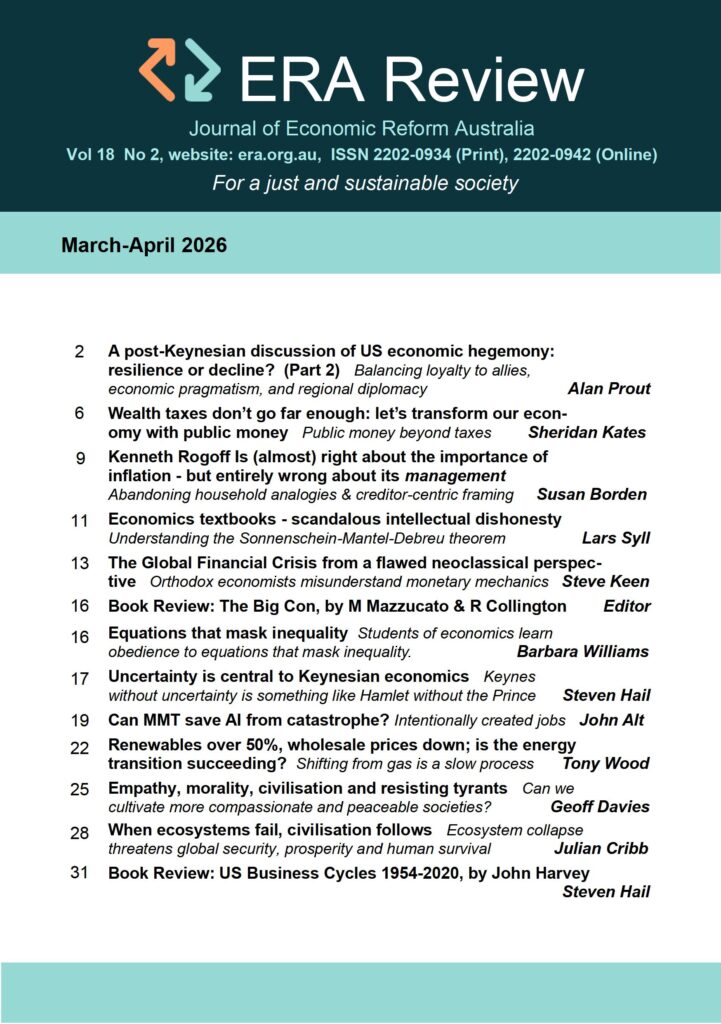Bill Mitchell on the purposes of taxation – Editor
A recent blog by Prof Bill Mitchell [1] has listed the purposes for which a sovereign government might wish to tax its citizens. The acquisition of taxation revenue is not on that list, because under a modern fiat money system taxation revenue is never needed to raise funds for government spending.
And that is because the government is the monopoly issuer of the nation’s currency. This is fully consistent with the principles of function finance, as elucidated by Abba Lerner [2].
A sovereign government might impose taxes to control inflation – taxation is a way that government imposes limits on the non-government sector’s capacity to spend and thus create real resource ‘space’ for government spending in pursuit of its social objectives without overreaching the capacity of the economy to respond by increasing real output.
One way of thinking about this is that taxation creates unemployment in the non-government sector and government spending creates the demand for goods and services which solves the unemployment.
Other reasons why a government might tax its citizens are:
- To redistribute purchasing power from the rich to the poor (high income to low income) – a point that is obvious.
- To alter the allocation of resources away from undesirable ends – such as tobacco or carbon taxes – making undesirable products more expensive in order to discourage their use.
- To provide some hypothecated public transparency for major projects/ programs like highways – politically contentious spending should be trans- parent. Taxes are, in fact, ‘demand drains’ and so reduce the capacity of the non-government sector to spend. In this sense, the transparency allows the non-government sector to see exactly what ‘demand injection’ (say highway spending) is replacing the command on resources that households and firms would have had in the absence of the taxes. It has nothing to do with the taxes funding anything. Just a $-for-$matching to help expose the opportunity cost.
References:
-
Abba Lerner (1943), Functional finance and the federal debt, Social Research,vol 10, no 1, pp 38-51
[su_divider top=”no” size=”0″ margin=”20″]
Even if we could grow our way out of the crisis and delay the inevitable and painful reconciliation of virtual and real wealth, there is the question of whether this would be a wise thing to do. Marginal costs of additional growth in rich countries, such as global warming, biodiversity loss and roadways choked with cars, now likely exceed marginal benefits of a little extra consumption. The end result is that promoting further economic growth makes us poorer, not richer. – Herman E. Daly, For the Common Good: Redirecting the economy toward community, the environment, and a sustainable future.































